Shell has announced that it will be the first supplier of sustainable aviation fuel (SAF) to customers in Singapore. The company has also announced the completion of upgrades to its Singapore facility, which will enable the blending of SAF in the country.
SAF is approved for use in operating aircraft as long as it is blended at a ratio of up to 50% with conventional jet fuel. So, having a blending facility in the region allows for a more efficient operation by moving neat SAF in bulk from production sources to the blending facility and then delivering blended SAF parcels to where it is needed.
This is a major milestone for the aviation industry in Asia, as SAF’s enhanced supply chain capabilities increase customer access to these sustainable fuels. For the first time in Singapore, more customers will be able to reduce emissions by flying with SAF. Specifically, the SAF supplied is made from waste products and sustainable feedstocks, which in turn will be blended with conventional jet fuel.
The first batch of sustainable fuel will be blended in Europe
This will test and verify the performance of the SAF supply chain that Shell has established in Asia. The company then intends to start blending subsequent batches at its Singapore facility.
Building capacity in the supply chain to blend, handle and distribute sustainable aviation fuels, is critical to enable more customers to access them. At the same time, this will allow us to accelerate the pace of decarbonization in the aviation sector. In fact, in its neat form, SAF can reduce lifecycle emissions by up to 80% compared to conventional fuel.
Jan Toschka, global president of Shell Aviation, said: “Today’s announcement is an example of how we are building the capabilities now to accelerate the use of SAF in Asia. We want to become a sustainability leader in this important market. In addition to investing in our capabilities to produce SAF, we are also focused on developing the regional infrastructure.
Leveraging on our extensive refueling network, I am proud that we are helping our customers decarbonize by becoming the first SAF supplier in Singapore. “Lee Seow Hiang, CEO of Changi Airport Group, said, “Emissions from aircraft and airport activities contribute to an airport’s carbon footprint. In addition, Changi Airport believes that SAF is one of the keys to leading the way towards a more sustainable airline industry.
Shell has announced its ambition to produce around 2 million tonnes of SAF per year by 2025 worldwide.
To this end, it has submitted plans to build a biofuels facility, subject to final investment decision, at the Shell Singapore Energy and Chemicals Park. The facility will have the capacity to produce 550,000 tonnes per year of low-carbon fuels, including SAF.
Ng Chin Hwee, managing director of engineering firm SIA, said, “We welcome Shell’s announcement to blend SAF in the Asia-Pacific region. Together with Shell and other like-minded companies in the aviation value chain, SIAEC supports the aviation sector in its goal of net-zero carbon emissions.
In this regard, we are one of the first maintenance, repair, and overhaul (MRO) service providers to successfully conduct a trial using blended PBS for engine testing at our engine test facility. The success of the test marks SIAEC’s capability and operational readiness to deliver sustainability-focused services to our customers.”
The enablement of SAF in Singapore and Asia is a major step forward and Shell will continue to work with stakeholders in the aviation ecosystem to decarbonize the sector. In conjunction with this announcement, Shell has launched a new set of sketches: Singapore: A 21st Century Energy Hub, which looks at sectors such as aviation in the context of potential pathways, including rapid and limited decarbonization, that Singapore could take as the energy transition progresses.
Source: Shell (2022)
